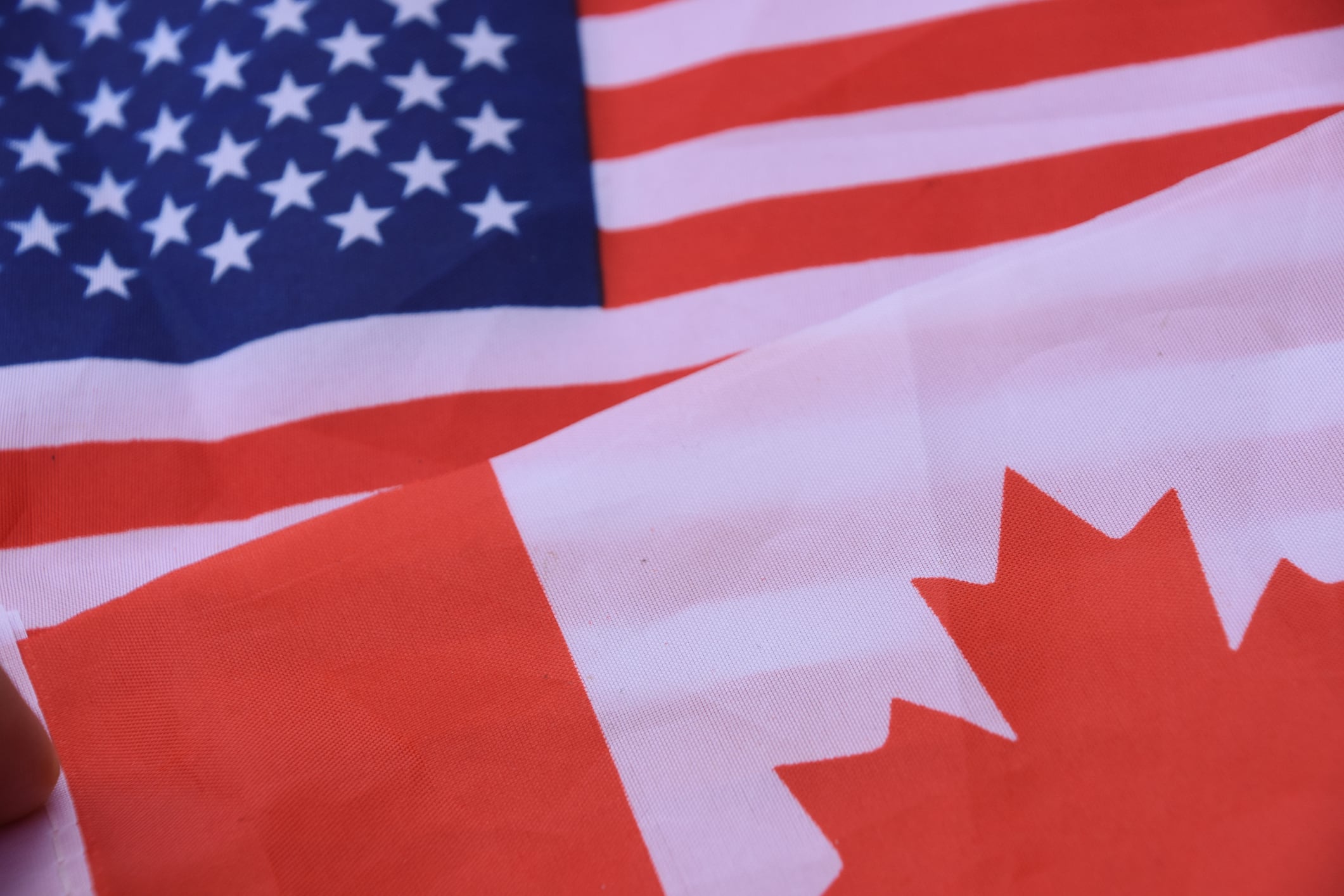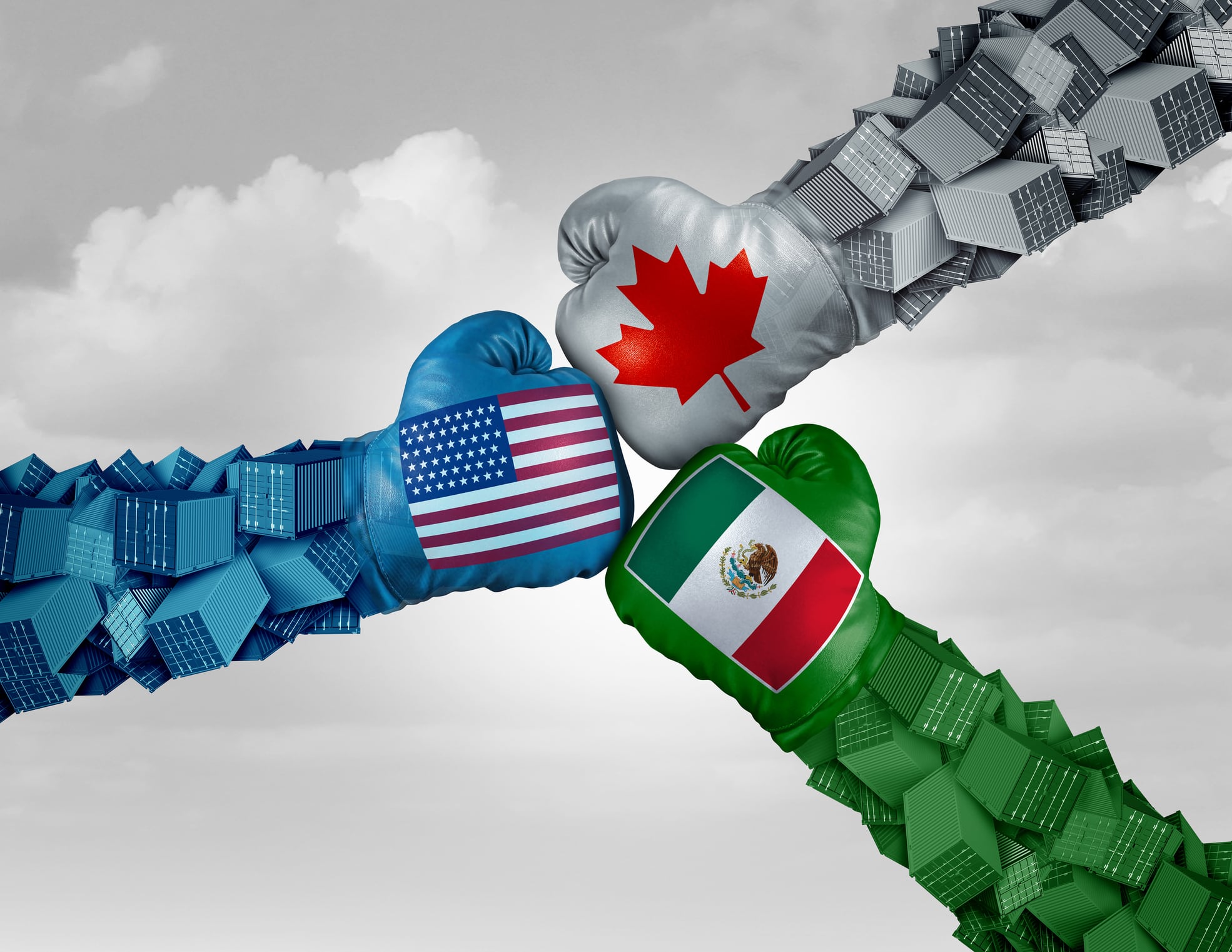Canada has passed a bill that will make it illegal for ministers to reduce tariffs or increase import quotas on dairy, eggs and poultry products in future trade deals.
Bill C-202 cleared both the House and the Senate on June 18 and now awaits the Royal Assent before officially becoming law.
The legislation will introduce a subsection into Canada’s foreign affairs act to protect the country’s supply management system. It will effectively ban ministers from (a) increasing the tariff rate quota,…, applicable to dairy products, poultry or eggs; or (b) reducing the tariff applicable to those goods when they are imported in excess of the applicable tariff rate quota.
In a nutshell, by passing the legislation, Canada has officially taken supply-managed goods – dairy, eggs and poultry – off the negotiating table.
The country is due to enter trade talks with the US and Mexico over the renewal of the USCMA deal this summer.
Canada’s supply management system has attracted criticism from US president Donald Trump while ‘securing the full benefit’ of the Canadian market is among the key objectives for the US in future trade negotiations, according to the latest National Trade Estimate Report on Foreign Trade Barriers.
Bird flu ‘running rampant’ and food safety flagged in Senate
Addressing the Senate during the bill’s third reading, senator Paula Simons said ‘there is no effective way to placate or appease President Trump’.
“Passing this bill would no doubt be a provocative move, but then he is so easily provoked – sometimes by the most imaginary of causes – that tiptoeing around him seems futile.
“There is certainly a strong argument to be made that with this mercurial man upending all the norms of international trade negotiations, we should protect Canadian agricultural producers in whatever ways we can.”
Tariffs
Canada is assessing tariffs on over US$5.5bn of US agricultural imports (tariff rates on US agricultural products not part of USCMA are 25%). Meanwhile, the US’ reciprocal tariff remains in effect. Energy and potash from Canada and Mexico continue be tariffed at 10%.
She added that recent relaxation of its rules around food inspection and public health ‘should give us all pause’: “Avian influenza is running rampant in the US poultry sector. It has jumped the species barrier to infect the American dairy herd all across that country. In the United States, dozens of farm workers have also fallen ill with bird flu, otherwise known as H5N1.
“Avian influenza is not the only issue. Under the leadership – if I may call it that – of [health secretary] Robert F. Kennedy, Jr., food inspectors have been laid off in the thousands, as have many of the comms staff who were tasked with letting Americans know about outbreaks of E. coli and listeria. his spring, the USDA’s Food Safety and Inspection Service actually scrapped a plan to monitor salmonella levels in raw turkey and chicken, and it has also postponed plans to sample breaded ready-to-cook poultry products like nuggets and chicken Kiev to check for salmonella.
“If we can no longer trust American food exports to be safe, the government has a greater responsibility than ever to protect Canadian consumers from food-borne diseases.”
Questioning the usefulness of the bill however, senator M. Deacon asked if the bill won’t simply paint ‘a big red bullseye’ on Canadian dairy, poultry and egg sectors. Simons responded: “I only wish I had the capacity to predict what Donald Trump and his government will do. I think the answer to that is impossible to know. Given the President’s capacity to perceive malice where there is none, and to inject malice where none is required, I don’t know that this is the most strategic move. But, again, it’s not in our hands.”
Industry division
The passage of Bill C-202 has also caused division among Canadian trade bodies – drawing praise from the dairy and poultry sectors but disappointment from grain producers.
Tariff uncertainty and market volatility are already prompting Canadian grain handlers to pursue additional export markets for shipments that are not already contracted, according to the latest annual attaché report on Canada’s grain and feed published by the USDA. Meanwhile, Canada’s grain exports are forecast to increase 2.4% from marketing year 2025/26, primarily on increased exports of wheat, but also barley, corn, and oats; this forecast is informed by Statistics Canada’s planting intentions survey zpublished on March 12, 2025.
In a statement, Grain Growers of Canada (GGC), which represents Canada’s grain farmers, said the legislation had been passed ‘without the thorough review and scrutiny required by parliamentarians, without consideration of its impact on international trade, and without regard for Canada’s export-oriented grain sector’.
“The legislation (…) poses serious risks to the livelihoods of Canada’s 70,000 grain farmers, who export more than 70% of what they grow,” the trade body said.
Kyle Larkin, Executive Director of GGC, said the bill ‘restricts our trade negotiators’ ability to secure the best possible deals for Canadians’.
“This legislation received unanimous consent from Members of Parliament without consulting with the Canadians it impacts the most, forcing the Senate to fast-track a flawed bill.”
Kyle Larkin, Grain Growers of Canada
“With critical trade negotiations and renegotiations ahead, including with our largest trading partner, the United States, passing Bill C-202 sends the wrong message internationally. “For grain farmers who rely on access to international markets, the result will be less ambitious trade agreements, fewer export opportunities, and slower economic growth at home.”
“Parliament chose to prioritize one group of farmers over another,” added Scott Hepworth, Acting Chair of GGC. “As a grain producer, I know firsthand how important international trade is to my family’s livelihood. Without reliable access to global markets, farmers like me are left behind. With Bill C-202 now passed, the government must refocus its efforts on helping grain farmers grow more food and expand our exports.”
Meanwhile, Canada’s dairy, poultry and egg farmers welcomed the bill’s passage.
“Dairy Farmers of Canada, Chicken Farmers of Canada, Egg Farmers of Canada, Turkey Farmers of Canada and the Canadian Hatching Egg Producers would like to thank all parliamentarians for the adoption of this legislation,” the organizations shared in a statement.
“During the recent election, all major parties expressed support for supply management and stated that it would be off the table in upcoming trade negotiations. The government reaffirmed this support in the Throne Speech, with the Prime Minister restating this commitment recently in the House of Commons. The passage of C-202 further underscores this clear commitment and we sincerely appreciate the steps taken in support of a strong, national food supply.
“This strong commitment equips Canada to continue to expand market opportunities for Canadian agriculture and agri-food exports, while safeguarding the food sovereignty of our country.
“Our shared priority remains to work with all MPs and Senators as they continue to support Canadian agriculture and prioritize our national food sovereignty and security by keeping supply management and any other concessions impacting our sectors off the table.
“Ultimately, the outcome of trade negotiations is what holds importance for dairy, poultry and egg farmers and the nearly 431,000 jobs our combined sectors support.”


